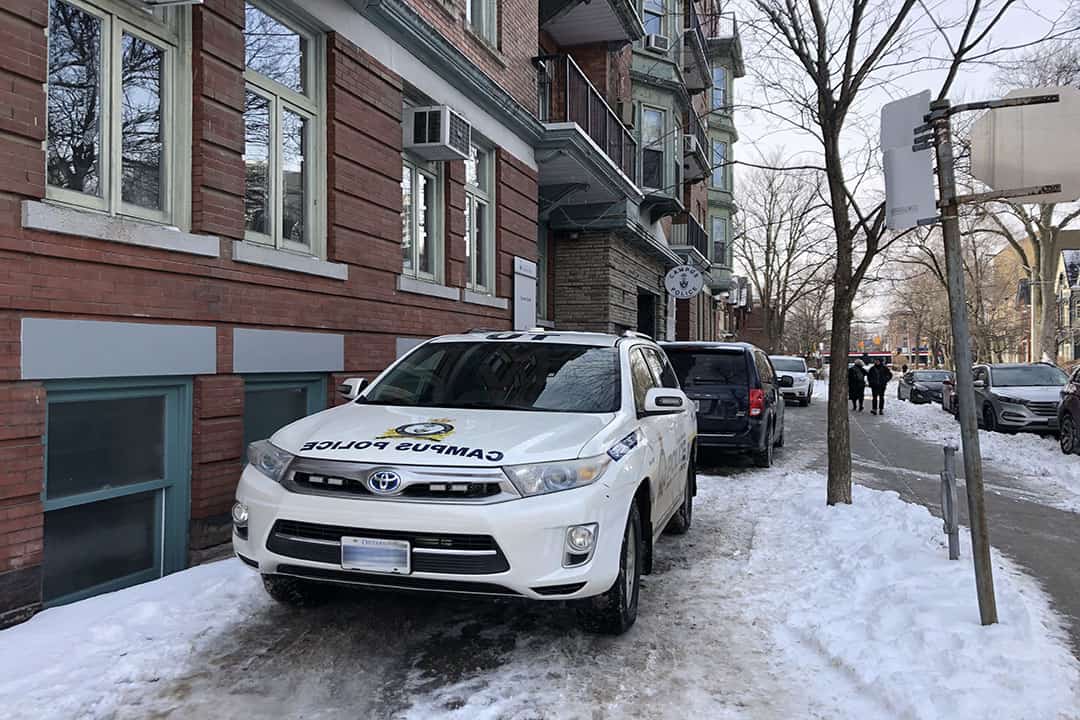Content warning: This article contains mentions of sexual assault.
In May 2019, York University student Ariana Markle filed a civil lawsuit against the University of Toronto Governing Council, the Toronto Police Services Board, and individual police officers and campus constables. This case is similar to other negative interactions students have had with the Campus Safety Special Constable Service, formerly known as the U of T Campus Police. A UTM student was once handcuffed by campus police during a mental health crisis, and UTSC students who reported sexual assault to campus police have had uncomfortable experiences.
The use of policing in Canada goes back to the 16th century. Recently, Canadians have differed in their opinions on the use of law enforcement through the police. While police officers are needed to some degree, we must determine when exactly police officers are necessary and how police services can be refined.
A power-based relationship
Municipal and campus police officers in Toronto hold enormous responsibility and power, making their power dynamic with civilians unbalanced. When an officer is allowed to legally carry a gun, a taser, and other weapons, there is already a clear power difference between them and a civilian. Furthermore, the police force draws their power from legal bodies, which gives them the right to use force.
Because civilians feel additional societal pressure to abide by the law, police officers have the power to make unreasonable and unethical requests of them. Students who have little experience with police authority can fall victim to this abuse.
Hence, the way that police officers react and act toward the public — especially toward Indigenous communities and other minoritized groups who experience higher levels of police brutality — reflects on our democracy.
More than just a university affair
The university’s campus police recently rebranded itself as the Campus Safety Special Constable Service, and advertised the accompanied visual changes as being more accessible and approachable to the public. However, Markle’s recent lawsuit against campus police officers — and other recent cases surrounding false arrest, intentional physical harm, and mental suffering — speak volumes about the many systemic issues present in policing on campus and the many changes necessary to improve on-campus safety for everyone.
While the purpose of the municipal police is to help the public, that is often not the case for Indigenous, Black, and racialized communities in Canada. Misuse of police power goes beyond the university level: it is institutional and should be targeted at the systemic level.
Prioritizing safer options
At the first glance, defunding the police — at all levels, including the university level — may seem to result in fewer police officers, and therefore a lack of safety. However, that is not the case: defunding the police takes funding from police services and puts it toward social resources like mental health training and the implementation of safer options.
One of these options could be a task force of people trained in mental health and the de-escalation of psychiatric distress. In emergency calls related to individuals experiencing psychiatric distress, police officers have been found to be more likely to use lethal force.
The police are not always best equipped to deal with certain cases, especially those involving mental health, so police officers should not be the initial responders. Instead, we should fund mental health support services and better train police officers in de-escalation. However, if the situation is escalating quickly, the police could provide backup if necessary.
Police skepticism about mental health concerns is not uncommon, and the use of tactics such as harassing victims, downplaying the attack, and abusing their power could all be present in police interactions. Mental health support is better suited to help victims than police intervention in situations such as these.
If our community is having issues with inappropriate police conduct in situations involving mental health, then poorer communities with fewer resources certainly are as well. Police officers, including campus police, must be trained in addressing and de-escalating emergency calls associated with mental health. Furthermore, if we were to defund the police, we should redirect that funding to organizations better equipped to be initial responders to mental health crises.
Jasmin Akbari is a second-year industrial relations and human resources, digital humanities, and writing & rhetoric student at Woodsworth College.
If you or someone you know has been affected by sexual violence or harassment at U of T:
- Visit safety.utoronto.ca for a list of safety resources.
- Visit svpscentre.utoronto.ca for information, contact details, and hours of operation for the tri-campus Sexual Violence Prevention & Support Centre. Centre staff can be reached by phone at 416-978-2266 or by email at [email protected].
- Call Campus Safety Special Constable Service to make a report at 416-978-2222 (for U of T St. George and U of T Scarborough) or 905-569-4333 (for U of T Mississauga)
- Call the Women’s College Hospital Sexual Assault and Domestic Violence Care Centre at 416-323-6040
- Call the Scarborough Grace Sexual Assault Care Centre at 416-495-2555
- Call the Assaulted Women’s Helpline at 866-863-0511


